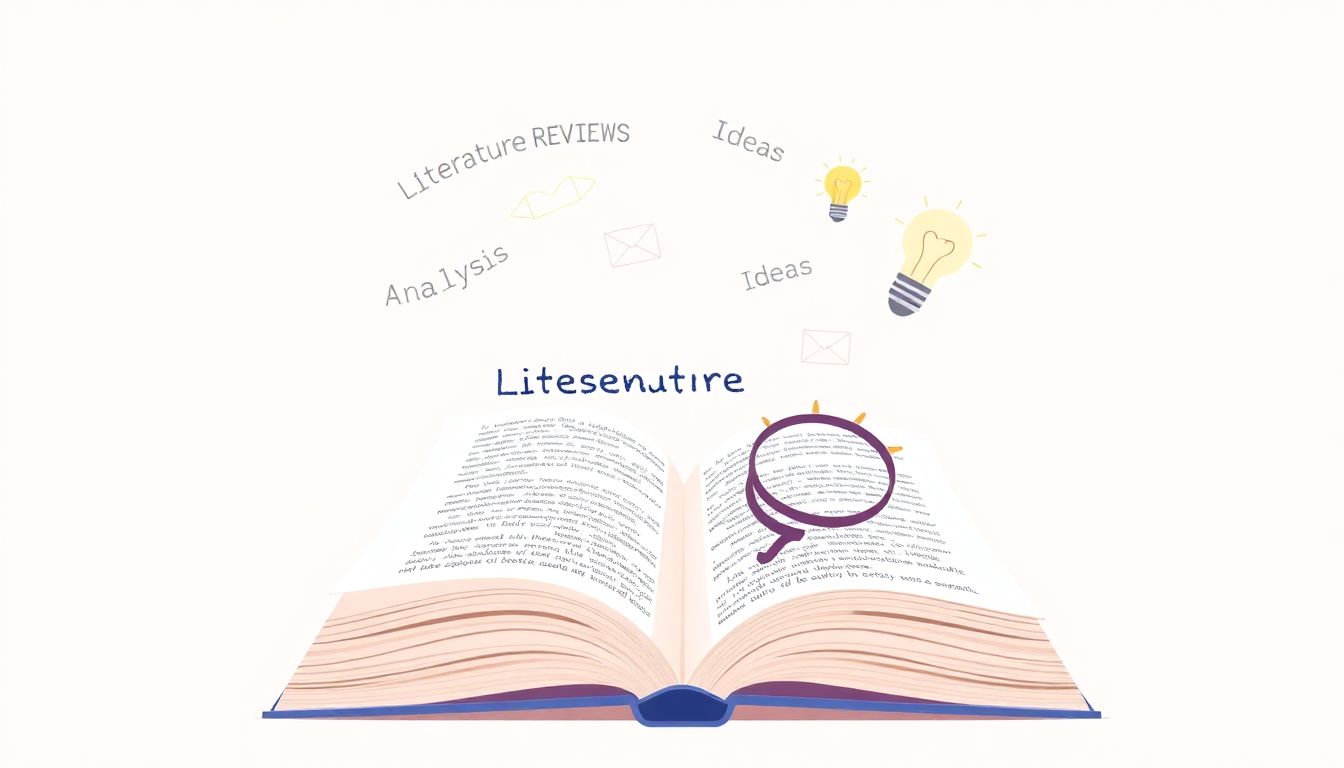Are you feeling overwhelmed by the idea of starting your research project? It can be tough to sift through countless topics and sources, especially if you’re not sure where to begin. Trust me, we’ve all been there—staring at a blank page and wondering how on earth to fill it.
But what if I told you that with the right prompts, you could turn that anxiety into action? Stick around, and I’ll show you how ChatGPT can be your secret weapon for planning, brainstorming, and organizing your research. You’ll wonder how you ever did without it!
From crafting engaging research questions to simulating interviews, we’ll explore a variety of prompts designed to make your research process smoother and more enjoyable. Get ready to tackle your project with confidence!
Key Takeaways
- Start your research project confidently by using tailored ChatGPT prompts to generate ideas and structure your work.
- Utilize specific prompts to break down research tasks into manageable steps and create timelines.
- When brainstorming topics, focus your inquiries to get creative and relevant suggestions from ChatGPT.
- Ensure you have reliable sources by asking for guidance on reputable databases and journals in your field.
- Craft effective research questions with prompts that help refine and evaluate your inquiries.
- Organize your research data using structures and templates to maintain clarity and direction.
- Create comprehensive research outlines by requesting key sections and methodologies tailored to your topic.
- Practice your interview skills with ChatGPT by simulating interviews and developing probing questions.

Best ChatGPT Prompts for Student Research Initiatives
For students diving into research projects, knowing which ChatGPT prompts can enhance their efforts is crucial. These prompts not only assist in organizing thoughts but also provide valuable insights into complex topics. Here are some effective prompts that students can easily copy and paste:
- “Help me generate a list of research questions related to [your topic].”
- “What are the main challenges researchers face when studying [specific area]?”
- “Provide a summary of recent studies about [topic].”
- “Suggest innovative research methods to explore [area of study].”
How to Use ChatGPT for Effective Research Planning
Planning research using ChatGPT can streamline the entire process. Start by outlining your objectives and determining your research question.
Next, input those objectives into ChatGPT to receive feedback on whether your goals are realistic.
Ask for help in breaking down your research project into manageable steps. For example, use:
- “Create a timeline for a research project on [topic].”
- “List potential obstacles in conducting research on [field].”
Remember to request resources that support each phase, ensuring you’re well equipped as you progress through your research journey.
Prompts to Brainstorm Research Topics for Students
Brainstorming research topics can be a daunting task, but ChatGPT makes it easier. Effective prompts can lead to unique and interesting ideas.
Start with general inquiries about your interests. Here’s a few prompts to get the creative juices flowing:
- “List potential research topics in the field of [your area of interest].”
- “What are some current trends in [subject] that could be researched further?”
- “Generate a list of unique study ideas related to [specific theme].”
By providing a specific focus, ChatGPT can deliver tailored suggestions that resonate with your academic goals.
ChatGPT Prompts for Finding Reliable Research Sources
Finding credible sources is essential for any research project. ChatGPT can help in this aspect by generating prompts that lead to robust information.
Start by asking for guidance on where to find reliable data:
- “What are some reputable databases for [topic] research?”
- “List some high-quality journals that publish articles on [subject].”
- “How can I evaluate the credibility of a source on [specific topic]?”
Using these prompts ensures that your research is grounded in authoritative, trustworthy information, setting a strong foundation for your work.

Writing and Analyzing Research Questions with ChatGPT
Writing effective research questions is crucial for guiding your study in the right direction.
ChatGPT is a handy assistant in this process, helping you formulate clear and focused questions.
Start by using specific prompts that define the scope of your inquiry.
- “Help me develop an analytical research question regarding [topic].”
- “Suggest ways to refine this research question: [insert your question].”
- “What makes a research question effective, particularly in [specific field]?”
You can also ask ChatGPT to critique your questions, providing an opportunity for improvement:
- “Evaluate this research question: [insert question]. How could it be made more precise?”
- “Provide examples of strong research questions in [field or topic].”
Prompts for Organizing Research Data and Notes
Once you gather your research data, organizing it efficiently is key to a successful project.
ChatGPT can assist with prompts focused on structuring your notes and findings.
Try these prompts to better manage your data:
- “Create a system for categorizing my research notes on [topic].”
- “Help me outline the data I’ve collected on [specific study].”
- “What are effective methods to summarize and organize qualitative data?”
Additionally, you can ask for templates to format your notes or data:
- “Provide a template for organizing research findings related to [topic].”
- “How can I visually represent the data I’ve collected on [subject]?”
Using ChatGPT to Create Research Outlines and Structures
Creating a research outline gives your project clarity and direction.
ChatGPT can help structure your ideas into an effective outline.
Start with these prompts to develop a comprehensive outline:
- “Generate an outline for a research paper on [your topic].”
- “Suggest key sections I should include for my research on [specific area].”
- “What are the best practices for outlining a literature review in [field]?”
Make sure to ask for specifics that pertain to your research focus:
- “Help me structure an argument for my research on [topic].”
- “Outline the methodology section for my paper on [subject].”
Interactive Prompts for Simulating Research Interviews
Simulating research interviews can provide valuable practice and preparation.
ChatGPT can aid with prompts that set up realistic interview scenarios.
Consider these interactive prompts for role-playing your research interviews:
- “Act as a participant in an interview about [topic] and answer the following questions.”
- “Simulate a research interview process for my topic, focusing on [specific aspect].”
- “Provide feedback on my interview questions related to [subject].”
This helps refine your questioning techniques and gather insights before actual interviews.
Additionally, you can ask ChatGPT to help generate questions you could use in interviews:
- “What are some open-ended questions I could ask participants regarding [topic]?”
- “Help me create a list of probing questions for my interview with [specific demographic].”

How ChatGPT Can Help with Literature Reviews
ChatGPT is a valuable tool for conducting literature reviews, assisting you in summarizing existing research and analyzing relevant studies.
Start by prompting it to identify key themes in your area of study.
- “Summarize the key findings from recent literature on [topic].”
- “What are the major gaps in research regarding [specific area]?”
- “List influential studies that have shaped the understanding of [subject].”
You can also ask ChatGPT to help sift through large volumes of literature:
- “Generate a comparative analysis of [two relevant studies].”
- “Highlight the methodologies used in studies about [topic].”
With these prompts, you can quickly gather insights and build a solid foundation for your review.
Prompts for Crafting Abstracts and Summaries
Writing an abstract can be tricky, but ChatGPT can simplify the process by helping you distill the essence of your research.
Use these prompts to craft clear and concise abstracts:
- “Draft an abstract for my research on [topic]. Include the purpose, methodology, and key findings.”
- “Summarize the main points of my paper on [specific subject] in one paragraph.”
- “What are the essentials to include in an abstract for [field] research?”
If you have existing summaries, ask for feedback to improve clarity:
- “Review this abstract: [insert abstract]. What could be made clearer?”
- “How can I make my summary more concise for [audience type]?”
These techniques ensure your abstracts and summaries effectively communicate your research’s significance.
Getting Feedback on Research Ideas with ChatGPT
Feedback is crucial when refining research ideas, and ChatGPT can provide a fresh perspective on your concepts.
Start by sharing your research idea and ask for constructive criticism:
- “Evaluate my research idea: [describe idea]. What are its strengths and weaknesses?”
- “Suggest improvements for this research proposal: [insert proposal].”
ChatGPT can also help you identify potential issues or gaps in your research:
- “What potential challenges should I anticipate with my research on [topic]?”
- “List alternative perspectives on [topic] that I should consider.”
This interactive approach can help you fine-tune your ideas and enhance the overall quality of your research initiative.
FAQs
ChatGPT can generate diverse research topic ideas by prompting for themes, trends, or specific subjects in your field. This interactive brainstorming process can inspire unique angles and questions for your research initiatives.
Effective prompts for organizing research data include asking ChatGPT to categorize information, create timelines, or suggest frameworks for data presentation. This helps streamline the analysis process and improve overall clarity.
ChatGPT aids in literature reviews by summarizing key articles, identifying relevant themes, and proposing gaps in existing research. This enhances comprehension and helps you build a solid foundation for your study.
Yes, ChatGPT can give constructive feedback on research ideas by evaluating clarity, relevance, and originality. You can refine your concepts further through this interactive dialogue, making your research proposal stronger.
